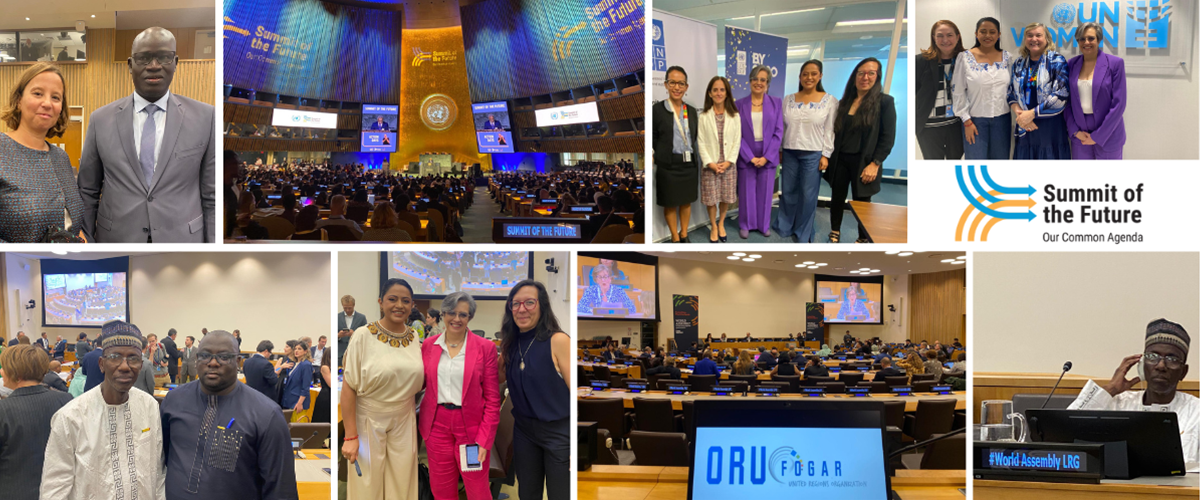The Report on the Summit of the Future assumes that regions play a key role

The United Nations Secretary General, António Guterres, has published a report that, in line with Action number 55 on the Summit of the Future (held from the 20th to the 23rd September 2024 in New York), has set out several recommendations on the way in which interaction with local and regional authorities can help promote the Agenda 2030. This report explicitly recognises the role of local and regional governments in the revitalisation of multilateralism and in the implementation of international commitments.
The document accurately reflects the proposals put forward by the Global Taskforce and the Advisory Group of Regional Governments in which ORU Fogar participates. The report puts forward practical and cost effective recommendations in order to strengthen the participation of territorial governments in the United Nations System. The Pact for the Future website highlights this as it states that “as the United Nations approaches its 80th anniversary, the significant participation of local and regional governments is essential to revitalise multilateralism and to comply with the 2030 promise with a real impact”.
Regionalism’s contribution
The publication of the report also constitutes a recognition of the regional government networks. In this process, ORU Fogar played an active role with the participation of delegations in the Future’s Summit, which took place in September 2024 in New York. Abdoulaye Maiga, president of the Mali Regions Association, together with Bandiougou Diawara, president of the Kayes Region, Ababacar Khalifa Ndao, president of Dagana in Senegal; Gilia Ninfa Gutiérrez, Moquegua’s Governor and Patrycia Donaire, ANGR’s Technical Secretary; and Paola Pabón, Pichincha’s Prefect and CONGOPE’s President, accompanied by Leopoldo Orlando, Prefect of Manabí in Ecuador were present.
The delegations actively participated in the Local and Regional Governments Forum, as well as in the Action Days, alongside holding high-level meetings with the UN Secretary General António Guterres, and establishing work meetings with agencies such as UN Habitat, UN Women and UNDP, thereby strengthening the visibility of regional governments on the international agenda.
A precedent for the future
Although the report was published without a specific mandate, it is expected that October’s formal presentation establishes an opportunity to consolidate these proposals in a global context marked by the reform of the multilateral system, the election of a new Secretary General and an intense geopolitical scenario. For ORU Fogar, it marks a historic step forward and a very positive precedent that will guide the 30th Conference of the Parties (COP30) of the United Nations Framework Convention on Climate Change (UNFCCC), which will be held in Belém, State of Pará, Brazil, from the 10th to the 21st of November 2025.










































































